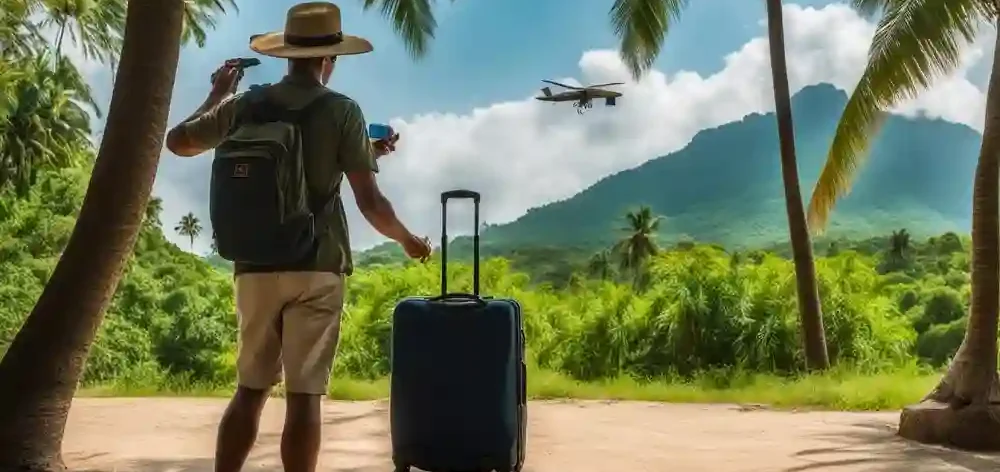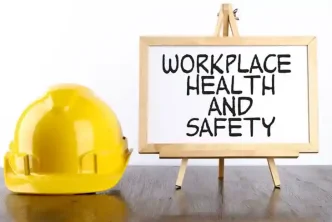Traveling abroad is an exciting experience, offering the chance to explore new cultures, meet people, and create lasting memories. However, it’s essential to take steps to ensure your safety during your travels. While most trips go smoothly, being prepared and aware of potential risks can help you avoid dangerous situations and make your journey more enjoyable. In this article, we’ll explore key tips for staying safe while traveling abroad, from planning your trip to handling unexpected situations. These tips will help you stay secure, reduce stress, and make the most of your time in foreign countries.
1. Plan Ahead and Research Your Destination
Know the Local Laws and Customs
One of the most important steps in staying safe abroad is researching your destination. Different countries have different laws, customs, and cultural practices, and what is acceptable in one country might be illegal or inappropriate in another. Before you travel, familiarize yourself with the legal and cultural norms of your destination. This includes understanding the rules on things like alcohol consumption, smoking, dress codes, and public behavior. Some countries have strict laws regarding issues like drug use, even for substances that may be legal in your home country. Being aware of these laws can prevent you from inadvertently breaking them.
Check Travel Advisories
Governments, such as the U.S. Department of State and other national foreign offices, issue travel advisories that provide safety and security information about various destinations. These advisories can inform you about political instability, health risks, natural disasters, or areas with high crime rates. Stay updated with these advisories to avoid traveling to unsafe regions.
Stay Informed About Health Risks
Traveling to certain countries may expose you to specific health risks, such as malaria, dengue fever, or foodborne illnesses. It’s important to check health advisories for your destination and take the necessary precautions. This might include getting vaccinated, packing appropriate medications, or bringing a travel health kit. Be sure to research the local healthcare system in case you need medical assistance during your trip.
2. Keep Your Valuables Secure
Use a Money Belt or Neck Pouch
Pickpocketing is a common risk in many tourist-heavy areas around the world. To keep your valuables safe, consider using a money belt or neck pouch to carry your passport, credit cards, and cash. These items are concealed under your clothing, making it much harder for thieves to access. Avoid carrying large amounts of cash or expensive jewelry that could make you a target. Consider using credit or debit cards, or even digital wallets, when making payments, as they are often safer than carrying large sums of money.
Lock Your Luggage
When traveling, always lock your luggage to deter theft. Use sturdy, high-quality locks for your bags, and keep an eye on your belongings when in transit. If possible, avoid leaving your luggage unattended in public spaces, such as airport terminals or hotel lobbies. For extra security, consider using a luggage tracking device. These small gadgets can be attached to your bag, allowing you to track its location in case it gets lost or stolen.
Avoid Displaying Expensive Electronics
Carrying expensive electronics, such as laptops, cameras, or smartphones, can make you a target for theft. When not in use, keep these items securely stored in a bag, or use a lock if you’re leaving them in your hotel room. Avoid flashing them around in crowded or unfamiliar areas, as this can attract unwanted attention. If you must bring expensive items, consider purchasing travel insurance that covers theft or damage to your belongings.
3. Be Aware of Your Surroundings
Stay Alert in Crowded Places
When traveling abroad, it’s essential to stay alert, especially in crowded places like markets, public transportation, and tourist attractions. Thieves often target distracted tourists, so always keep an eye on your surroundings. If something feels off, trust your instincts and leave the area. Additionally, be cautious when using your phone in public. People may try to distract you while their accomplices steal your belongings. Keep your phone in a secure pocket or bag when not in use.
Avoid Risky Areas After Dark
While many cities are safe during the day, certain areas may become dangerous after dark. Before you head out in the evening, research the safety of your destination. Avoid walking through poorly lit or deserted areas, particularly if you’re alone. If you need to travel after dark, consider taking a registered taxi, rideshare service, or using public transport rather than walking.
Trust Your Instincts
Sometimes, your gut feeling is the best indicator of danger. If something doesn’t feel right or you feel uncomfortable in a particular situation, remove yourself from it. Trusting your instincts can help you avoid potential risks and keep you out of harm’s way.
4. Stay Connected with Friends and Family
Share Your Travel Plans
Before you leave for your trip, share your travel itinerary, accommodation details, and emergency contact information with a trusted friend or family member. This ensures that someone knows where you are and can help if anything goes wrong. You can also set up regular check-ins during your trip to let loved ones know you’re safe. Consider using messaging apps or social media to keep them updated, especially if you’re traveling in areas with limited phone service.
Have Emergency Numbers Handy
In case of an emergency, make sure you have the local emergency numbers saved on your phone. These numbers can vary by country, so it’s crucial to know them before you travel. Additionally, consider downloading apps that provide quick access to emergency services, translation tools, or even local safety tips. It’s also helpful to know where the nearest embassy or consulate is located, as they can provide assistance in case you lose your passport, need help with legal issues, or require evacuation.
5. Protect Your Health While Abroad
Stay Hydrated and Avoid Risky Foods
When traveling to a new country, especially in regions with different standards of sanitation, it’s important to be mindful of the food and water you consume. Stick to bottled water and avoid ice in drinks, as tap water in some countries can cause illness. When eating, choose food from reputable restaurants or food vendors and avoid street food if you’re unsure about its hygiene standards. Additionally, be cautious about your personal hygiene. Wash your hands regularly with soap and water, especially before eating, and carry hand sanitizer when soap is not available.
Purchase Travel Health Insurance
Travel health insurance can provide valuable coverage in case you get sick or injured while abroad. Many travel insurance plans include medical evacuation, which can be critical if you need to be flown to a hospital in your home country or another location for treatment. Make sure to choose a plan that covers medical emergencies and repatriation.
Pack a First Aid Kit
Even in areas with good healthcare systems, it’s a good idea to pack a basic first aid kit. Include items like pain relievers, bandages, antiseptic wipes, allergy medication, and any prescriptions you may need. Having a well-stocked kit can help you handle minor injuries or illnesses without having to find medical help immediately.
6. Keep Copies of Important Documents
Make Copies of Your Passport and Travel Documents
Losing your passport or important travel documents can be a nightmare, especially in a foreign country. Before you leave, make copies of your passport, travel insurance, flight tickets, and any other important documents. Keep both physical copies and digital backups, and store them in separate locations—one in your luggage and one with a trusted person back home. If your passport is lost or stolen, having copies will make it easier to report the theft and apply for a replacement. Keep in mind that embassies may require proof of identity to process the replacement of lost documents.
7. Stay Safe Online
Use VPNs and Secure Wi-Fi Networks
While traveling abroad, you may need to access public Wi-Fi in airports, hotels, or cafes. Unfortunately, public networks can be insecure, making it easier for hackers to steal your personal information. Protect your privacy by using a Virtual Private Network (VPN) to encrypt your internet connection. Avoid accessing sensitive accounts, such as online banking or credit card details, over unsecured networks.
Be Cautious with Personal Information
When interacting with people online, whether through social media or apps, be cautious about sharing personal information. Avoid posting details about your travel plans or current location in real-time, as this can make you a target for criminals. If you need to share information, ensure it’s done securely through private channels rather than public platforms.
Conclusion: Stay Safe and Enjoy Your Travels
Traveling abroad is a thrilling experience, but safety should always be your top priority. By planning ahead, staying vigilant, and taking necessary precautions, you can minimize risks and enjoy a safe, memorable trip. Remember that being prepared is the key to staying safe while abroad, so take the time to research, pack accordingly, and be aware of your surroundings. With these tips in mind, you can focus on exploring new destinations, learning about different cultures, and making the most of your travels—confident that you’re taking steps to protect your safety and well-being every step of the way.





